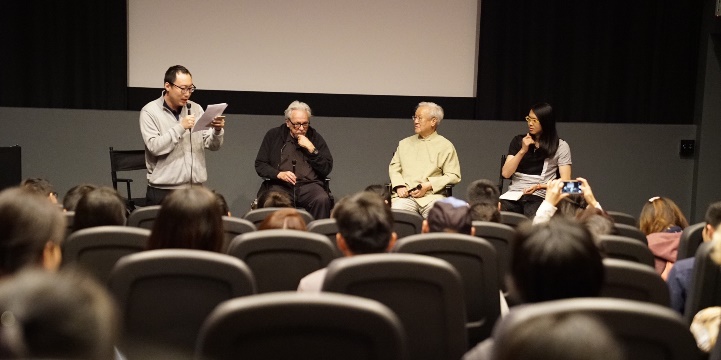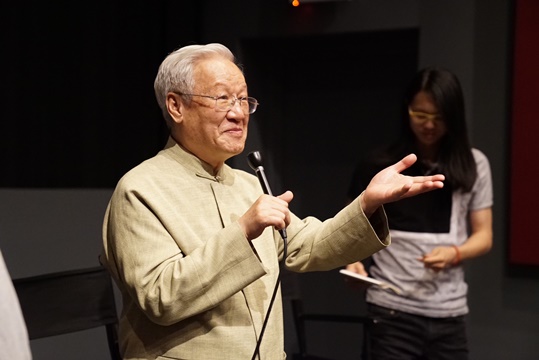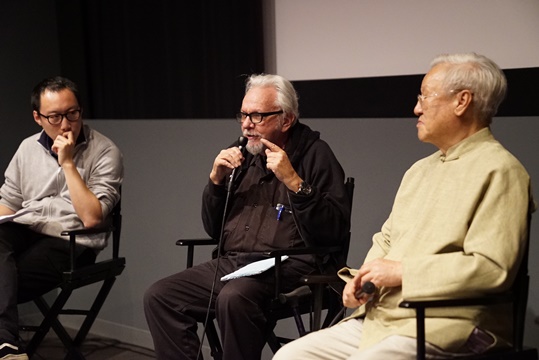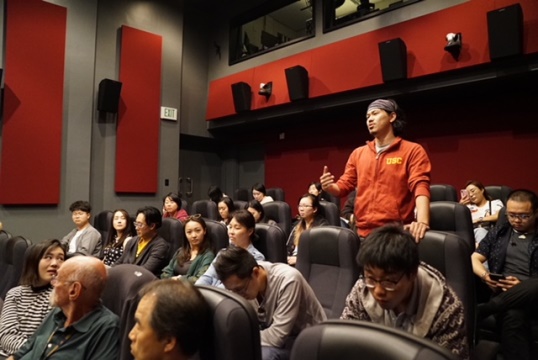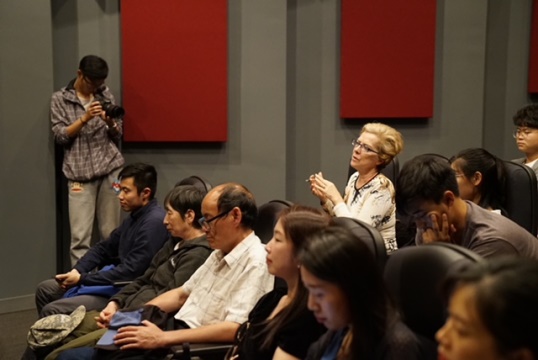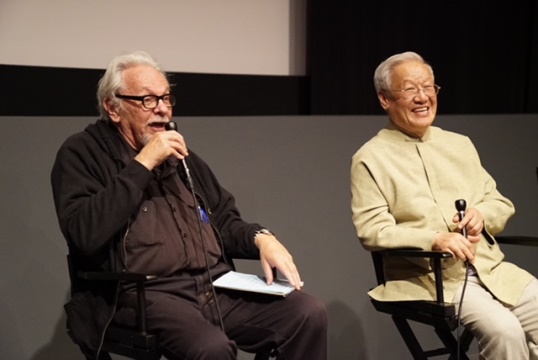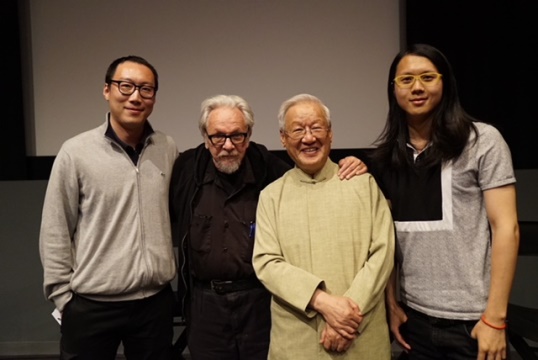China legacy director Fei Xie at UCLA
From left: Rui Yao, Robert Rosen, Fei Xie, Zhao Liu
LAPost/Los Angeles, Ca (June 8, 2024) – The film Black Snow (1990) directed by Fei Xie was screened at the UCLA School of Theater, Film and Television (TFT for short), at 7:00 pm on June 7th, 2018. This event was curated and hosted by Rui Yao, a visiting scholar of TFT and an associate professor of Guangzhou University in China. The screening was followed by a panel discussion between director Fei Xie and Robert Rosen, the legendary film educator, critic, preservationist and the former dean of TFT. The interpretation for the discussion was provided by Lewis Liu (Zhao Liu), the executive director of the Los Angeles Chinese Film Festival.
Fei Xie
The film Black Snow was an adaptation of the novel written by Heng Liu. It won the Silver Bear award at the Berlin International Film Festival in 1990. With famous Chinese actor Wen Jiang in the starring role, this film tells the story of a young man who is disillusioned with life when he returns to Beijing from a labor camp. With a tragic story displaying a sense of fate, the film reveals the isolation and indifference between people during the social transformation of commercialization of the 1980s and 1990s. Professor Robert Rosen was the first American who visited China to teach during the 1980s. In the panel discussion following the screening, Professor Robert Rosen and Director Fei Xie talked in depth about the film in terms of background, the production, the aesthetics, as well as film education in China during the 1980s-1990s.
Director Fei Xie mentioned that the original name of the film was Black Snow, but there was no snow in winter when filming in Beijing. Wen Jiang came up with the idea that the main character could be 24 years old, (Wen Jiang was 26 when filming). And thus, the name could be “Ben Ming Nian” (the current year in a 12-Year cycle, in which you are probably fated for disaster). This film was considered the beginning of the Chinese urban film movement. The realistic style of the film and the way the urban environment and urban life was presented had a deep influence on subsequent urban films.
Director Fei Xie mentioned that his film, Black Snow, was influenced by Taxi Driver and many other American genre films that Professor Robert Rosen had screened in China during the 1980s. Professor Robert Rosen praised Fei Xie’s extraordinary work for portraying the complex characters and his technique for using shadows. Director Fei Xie thought the protagonist performed by Wen Jiang could be understood as the descendent of Rickshaw Boy, LuoTuoXiangZi, in a new era. The shadows created by the low-key lighting helped to emphasize the toughness of the character.
Fei Xie is also a successful educator. Many of his former students are now world-renowned directors. According to him, the development of the talent has already been completed before students attend film school. He also said that rules and regulations are useless when cultivating artists. “By providing a good environment, they will shine. “
The enthusiastic audience asked questions regarding the collaboration of the film industries between China and the U.S. under the trade war and recent scandals in the Chinese movie industry. Fei Xie said the most important thing for a movie is its content, noting that he didn’t think the trade war would have a negative effect on this. He also said that the film industry should have no tolerance for illegal, dishonest or unethical conduct.
Since many audience members were unfamiliar with Chinese movies from the 1980’s and 1990’s such as Black Snow, this screening opened a window for the public to have a better understanding of Chinese movies during that time from the director’s point of view. It also highlighted the precious qualities that Chinese filmmakers from the last century typically have such as social responsibility and artistic vision.
The event was sponsored by UCLA TFT, the Los Angeles Chinese Film Festival., and UCLA-CSSA, AACYF, LAPOST, GZW, ZIJING, etc.
From left: Rui Yao, Robert Rosen, Fei Xie,

